Banking from your phone?
Download our app
Welcome Back
You can access your accounts here.

Banking from your phone?
Scan the code to download our app.

not featured
2023-05-24
Financial Health
published
Should You Keep Your Credit Utilization at 30% or Below?
 <img
<img
-
For many of us, using credit cards or other forms of credit is just part of life. While this may be especially true during the holidays, it can be more convenient in many other cases throughout the year. For instance, if you’re serving overseas, using a credit card may often be simpler than using the local currency.
But when you spend with credit, there’s a lot more you need to think about -- like your credit score and credit utilization. When it comes to credit utilization, it can be tricky to figure out just how much you should be using.
Keep reading to find out more about credit utilization, its impact on your credit score, and how to improve your credit score.
What Determines Your Credit Score?
There are two main types of credit score: the FICO Score and the VantageScore. In most cases, the FICO score is what’s used for lending decisions, so we’ll focus on that.
FICO Scores are calculated using five different pieces of data. Each piece of data makes up a different percentage of your overall score.
- 35% Payment History: When calculating your credit score, this is the most important factor. Your payment history lets lenders know whether you make your payments on time. And this can give them a picture of how reliable you are.
- 30% Credit Usage: If you are using too much of your available credit, it may mean that you are overextending yourself and spending at an unsustainable level. A lower credit utilization rate is generally best.
- 15% Length of Credit History: If you’ve shown yourself as an established and responsible credit user over many years, this can reflect on you favorably; if you’re newer to using credit, you’ll have to work a little harder in the beginning to prove yourself.
- 10% Credit Mix: Credit doesn’t just mean credit cards. Whether it’s mortgages, loans, retail accounts or something else, the better you’re able to manage your mixture of credit, the better your score will likely be.
- 10% New Credit: If you have a lot of new credit lines opened in a short amount of time, this could impact your credit score. However, it’s tied with credit mix for the least important factor in your score.
What’s the Right Amount of Credit To Use?
Credit usage or credit utilization is the second-most important factor in calculating your credit score. If you want the best credit score, what’s the right amount of credit to use?
There’s a popular rule of thumb you may have heard about -- the 30% rule. This means you should take care not to spend more than 30% of your available credit at any given time. For instance, let’s say you had a $5,000 monthly credit limit on your credit card. According to the 30% rule, you’d want to be sure you didn’t spend more than $1,500 per month, or 30%.
But it turns out that the 30% rule may be outdated advice. In fact, using much less than 30% of your credit may give better results when it comes to increasing your credit score. According to Can Arkali from FICO, the customers with the best credit scores -- the top 25% who have a score of 795 or higher -- use an average of only 7% of their credit.
Going back to the example above, someone with a credit limit of $5,000 may find it challenging to spend only 7% or $350 per month. But this is only the case if you pay your credit card bill once a month. You can always make multiple payments toward your credit card throughout the month in order to keep your credit utilization low.
How Else Can You Improve Your Credit Score?
Credit utilization is just one important piece when it comes to determining your credit score. Of course, being mindful about using less of your available credit or making more frequent payments when possible can help boost your score.
But these are far from the only steps you can take to get a credit score you’re happy with.
Remember: Making your monthly payments on time and paying your balance in full whenever possible can go a long way in increasing your credit score. If you don’t pay on time or get in the habit of making only minimum payments, it does more than impact your credit score. You’ll also get hit with additional interest charges. When interest adds up, it only makes it harder for you to pay off your bill in the future.
You’ll also want to review your credit reports at least once a year. Reviewing credit reports can help you catch any errors or mistakes. And it can help you figure out exactly what is impacting your score the most. That way, you’ll know which particular areas you need to work on.
You’re allowed to request a free credit report from each of the three major credit bureaus -- Equifax, Experian, and TransUnion -- once per year.
Requesting your credit report is not the same thing as making a credit inquiry, don’t worry -- viewing your credit report will not hurt your credit score. However, applying for too many credit lines at once would mean multiple credit inquiries in a short amount of time, and this can negatively impact your score.
And another thing can negatively impact your credit score: becoming a victim of identity theft or fraud, even though it isn’t your fault. This means it’s extremely important that you pay attention to your credit score -- in some cases, that could be the first red flag that something is wrong.
At Armed Forces Bank, we are proud to offer several products that can help you protect yourself from identity theft and fraud, whether you’re a personal banking or business banking customer.
Our Access Rewards Checking** offers Credit Monitoring and Reporting, as well as Identity Theft Monitoring & Resolution† Services.
And our Business Banking services include ACH Block and Filter, Check Positive Pay, and e.Business -- all of which help monitor your account and ensure you're protected from fraud.
Your credit score could be your key to lower interest rates and other financial benefits. We’re here to help protect it.
Armed Forces Bank Is Your Financial Partner
At Armed Forces Bank, we have been committed to serving those who serve since 1907. Let us be your financial partner. We’re here to answer your questions about credit and credit usage. And we offer a secured credit builder credit card* for those looking to improve their score.
Member FDIC
*Subject to credit approval. Fees apply. Secured Credit Builder Savings account required.
**$100 opening deposit required. $6 monthly service charge applies. $7.50 incoming wire fee applies. Other fees may apply. Closing new accounts within 90 days of opening will result in a $20 early closure fee. Registration/activation required. Benefits are available to personal checking accounts and their primary account owner and joint account owner(s) subject to the terms and conditions set forth in the Guide to Benefit and/or insurance documents for the applicable Benefits. Some Benefits require authentication, registration and/or activation. Benefits are not available to the "signer" on the account who is not an account owner or to the businesses, clubs, trusts, organizations and/or churches and their members, or schools and their employee/students.
INSURANCE DISCLOSURE:
Insurance products are NOT insured by FDIC or any Federal Government Agency; NOT a deposit of or guaranteed by the bank or any bank affiliate.